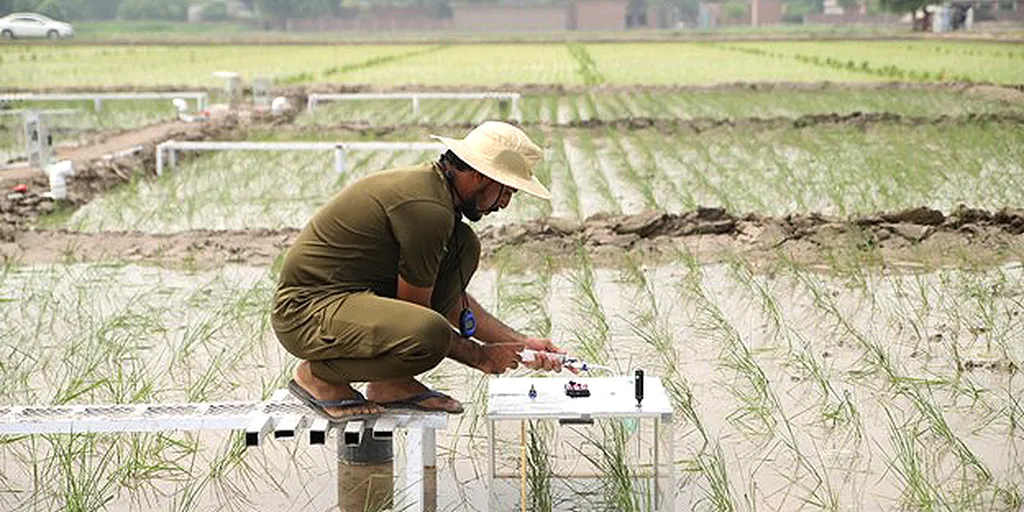In the heart of Pakistan, researchers have uncovered a promising solution to combat drought stress in rice crops, a challenge that plagues farmers worldwide. Dr. Faiza Javed, a botanist from the Department of Botany at Lahore College for Women University, has led a study that could revolutionize sustainable agriculture, particularly in water-scarce regions.
The study, published in the *Journal of Sustainable Agriculture and Environment* (translated as *Journal of Sustainable Farming and Environment*), focuses on eco-friendly, plant-based hydrogels that can significantly improve drought resilience in rice (Oryza sativa L.). These hydrogels, derived from potato peel powder-chitosan (PPPC), cellulose-based (CL), and gum arabica (GA), were applied through seed coating and soil amendment, offering a low-cost, sustainable adaptation tool for farmers.
“Water stress affects over one-third of global cropland, and rice is particularly vulnerable, especially during its reproductive stage,” Dr. Javed explained. “Our research aimed to find a cost-effective and efficient way to enhance drought tolerance in rice, thereby improving food security and socioeconomic stability in drought-prone areas.”
The hydrogels were characterized and tested both in vitro and in pots under reproductive-stage drought stress. The results were promising. Under drought conditions, seed coating with CL hydrogel increased germination by 28%, shoot length by 37%, and grain yield by up to 140% compared to the control. Meanwhile, PPPC hydrogel maximized root length by 43% and improved the 1000-grain weight.
Both application methods—seed coating and soil application—enhanced drought tolerance, but seed coating proved to be more cost-effective and efficient. This finding is crucial for farmers in water-scarce regions, as it offers a practical and affordable solution to improve crop productivity and resilience.
The commercial implications of this research are substantial. As the world grapples with climate change and water scarcity, innovative solutions like these hydrogels can support climate-resilient agriculture. This not only enhances food security but also contributes to socioeconomic stability in drought-prone areas.
Dr. Javed’s research highlights the potential of plant-based hydrogels to shape the future of sustainable agriculture. As we face increasing environmental challenges, such innovations offer hope for a more resilient and productive agricultural sector.
“This study provides a sustainable, low-cost adaptation tool for rice farmers in water-scarce regions,” Dr. Javed said. “It’s a step towards enhancing food security and supporting climate-resilient agriculture, which is crucial for socioeconomic stability in drought-prone areas.”
The findings from this study could pave the way for further research and development in the field of eco-friendly agricultural technologies. As we strive for a more sustainable future, innovations like these hydrogels offer a beacon of hope for farmers and the agricultural industry alike.

